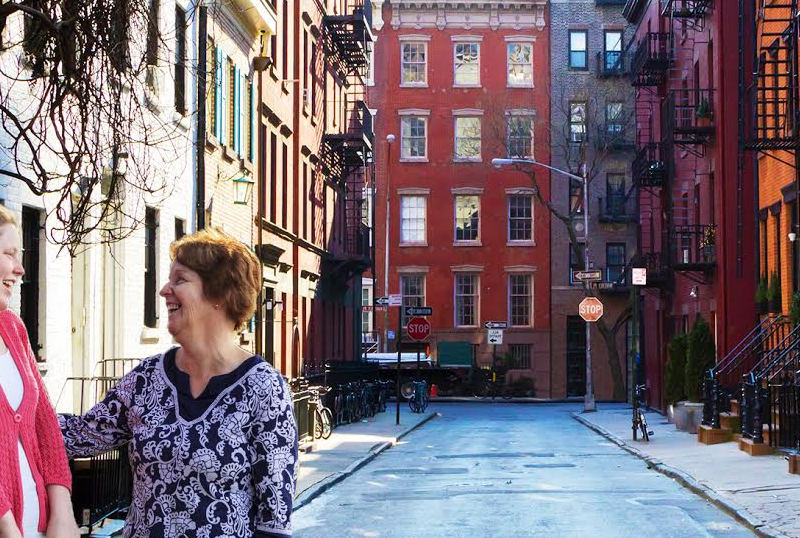Autism is the most commonly diagnosed developmental disability, affecting 1 in every 68 children. These children will likely live an average lifespan of 80 years, the same as any other adult in the USA. In this next decade, 500,000 young adults with autism will turn 21.
Autistic individuals are men and woman, some communicating verbally and others nonverbally. Those on the autism spectrum are typically characterized by the following: atypical social interaction skills, variability with verbal and nonverbal communication, unusual and/or repetitive actions, or severely limited activities and interests. These behaviors and characteristics range from mild to severe. Autistic individuals may seek isolation but many do desire socialization, yet with varying intensity and persons.
Those with autism may have exponentially acute senses—sight, sound, smell, taste, and touch. Bright or fluorescent lighting can be overwhelming. Loud sounds and crowds of people may be as well. The ability to concentrate for long periods of time on one thing, and their attention to detail is something those without autism find enviable. They are often highly visual people, and many have found ways to communicate through multiple mediums besides with words.
Those with autism may avoid eye contact with other people and, because they often take language literally, may have difficulty with metaphors, humor, and sarcasm. Interpreting what others are thinking or feeling is challenging because they have difficulty understanding social cues, such as tone of voice or facial expressions. It is a myth that those with autism are unable to feel empathy. Self-advocate Dora Raymaker says, “Just because someone may not express emotions in a way that is recognizable to others does not mean they are not feeling them. I often feel things too deeply and have to run away, not because I am callous, but because I feel so strongly it causes my brain to shut down or freak out.”
Those with autism think, process, and behave differently than neurotypical individuals. As renowned animal rights activist and professor Temple Grandin says, they are “Different, but not less.” They can, with support and slight modifications, become assets to every community and the workforce.
What causes autism?
“Scientists aren’t certain what causes autism. It’s likely that both biology and environment play a role, and researchers have identified a number of genes associated with autism. Studies of autistics have found atypical structures and neural connections in several regions of the brain. Other studies suggest that people with autism have abnormal levels neurotransmitters in the brain. These abnormalities suggest that autism could result from the disruption of normal brain development early in fetal development, caused by mutations in genes that control brain growth and that regulate how neurons communicate with each other. While these findings are intriguing, they are preliminary and require further study.
The theory that parental practices are responsible for autism has long been disproved. The early interpretation that cold, frigid “refrigerator mothers” caused their children to become autistic is completely false. In February 2009, a federal court ruled that there was no proven link between certain early childhood vaccines. Many other studies, including one by the National Academy of Sciences, have shown that there is no link between childhood vaccination and autism.
What is the diagnostic criteria for autism?
Autism varies widely in its severity and symptoms and may go unrecognized, especially in mildly affected children or when it is masked by other debilitating handicaps. Doctors rely on a core group of behaviors to alert them to the possibility of a diagnosis of autism. These behaviors are:
- impaired ability to make friends with peers
- impaired ability to initiate or sustain a conversation with others
- absence or impairment of imaginative and social play
- stereotyped, repetitive, or unusual use of language
- restricted patterns of interest that are abnormal in intensity or focus
- preoccupation with certain objects or subjects
- inflexible adherence to specific routines or rituals
Doctors will often use a questionnaire or other screening instrument to gather information about a child’s development and behavior. Some screening instruments rely solely on parental observations; others rely on a combination of parent and doctor observations. If screening instruments indicate the possibility of autism, doctors will generally ask for a more comprehensive evaluation.
Autism is a complex disorder. A comprehensive evaluation requires a multidisciplinary team including a psychologist, neurologist, psychiatrist, speech therapist, and other professionals. The team members will conduct a thorough neurological assessment and in-depth cognitive and language testing. Because hearing problems can cause behaviors that could be mistaken for autism, children with delayed speech development should also have their hearing tested. After a thorough evaluation, the team usually meets with parents to explain the results of the evaluation and present the diagnosis.
Children with autistic behaviors but well-developed language skills are often diagnosed with Asperger’s syndrome. Children who develop normally and then suddenly deteriorate between the ages of 3 to 10 years and show marked autistic behaviors may be diagnosed with childhood disintegrative disorder. Girls with autistic symptoms may be suffering from Rett syndrome, a sex-linked genetic disorder characterized by social withdrawal, regressed language skills, and hand wringing.
Steps towards early diagnosis and education
The medical community has made great strides in early diagnosis of autism, and in developing individualized, education plans collaboratively with parents and educators. Here are some areas where significant change has been made:
- diagnosing Austism Spectrum Disorder at an early age—with diagnosis often being made during the first year of life
- the profound effect of early and intense education, reshaping special education programs of our schools
- medical research’s increasingly focused attention on Autism Spectrum Disorders
- promising classification of different “flavors” of autism that will facilitate “personalized medicine” uniquely fitted to each individual




